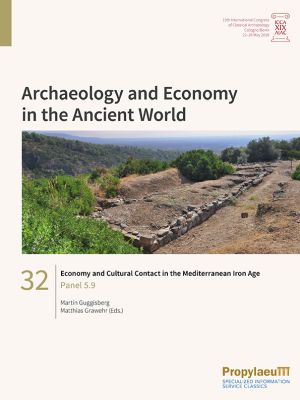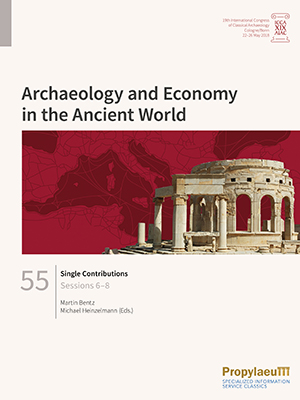Montanaro , Andrea Celestino
Economy and Cultural Contact in the Mediterranean Iron Age: Panel 5.9
The economy has always been a driving force for cultural contact. Analyzing the economic connections within the Ancient World can provide a promising basis for studying intercultural connections. The Iron Age is a period of increasing inter-connectivity between different 'cultures' in the Mediterranean and it offers the fascinating possibility of studying an emerging economic and cultural system. Where did the new routes pass through that the people moved and shifted commodities along? How did the emerging demand on foreign markets influence production patterns and social structure within the local communities? How did local customs react to foreign commodities and how did such imports shape local culture? This volume is a collection of papers that focus on the 8th–6th century BC. Long object biographies are meticulously reconstructed and analyzed through up-to-date methodology to provide answers on production modes, trade routes, and consumption. Debating resources, commodities, and the reception of foreign products, the volume offers new details and insights to further our understanding of the role played by the economy in cultural contacts.
Sessions 6–8, Single Contributions
Economic aspects permeate all areas of public and private life in ancient societies, whether in urban development, religion, art, housing, or in death. Research on ancient economies has long played a significant role in ancient history. Increasingly in the last decades, awareness has grown in archaeology that the material culture of ancient societies offers excellent opportunities for studying the structure, performance, and dynamics of ancient economic systems and economic processes. Therefore, the main objective of this congress was to understand economy as a central element of classical societies and to analyse its interaction with ecological, political, social, religious, and cultural backgrounds. The theme of the congress was addressed to all disciplines that deal with Greco-Roman civilization and their neighbouring cultures from the Aegean Bronze Age to the end of Late Antiquity.
This collective volume contains single contributions from sessions 6, 7 and 8, which discuss questions about consumption and investment in everyday life, sanctuaries and urban contexts, as well as questions about the role of the city in the ancient economy.








